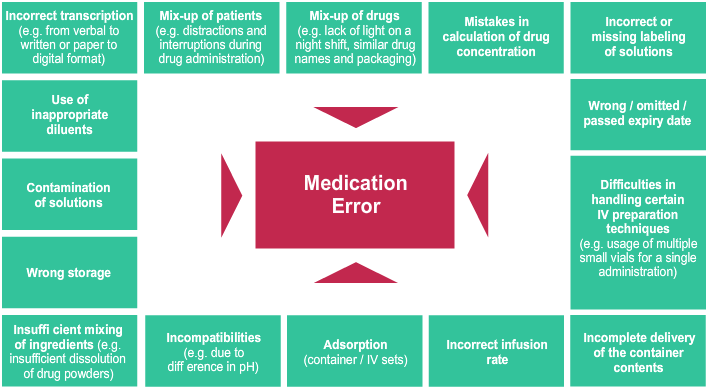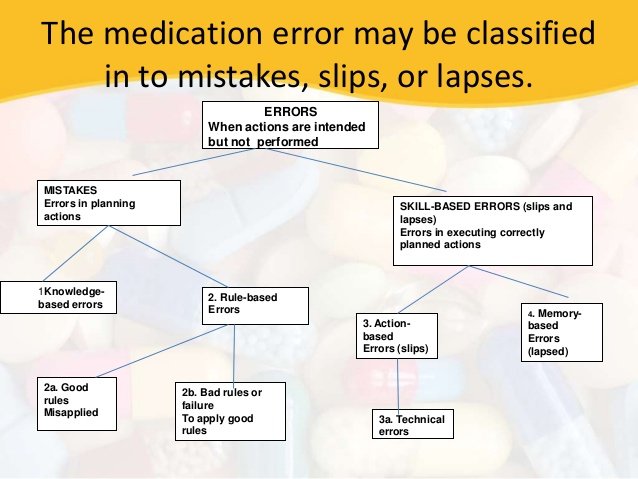Nursing Home Medication Mistake Attorneys
Medication errors in nursing homes are more common and more dangerous than most people realize. From missed doses to administering the wrong drug entirely, these mistakes can lead to serious health complications or even death. When staff fail to follow proper medication protocols, your loved one pays the price.
At Senior Justice Law Firm, we focus exclusively on elder abuse and neglect cases, including those involving nursing home medication errors. If you believe a facility’s negligence caused harm to your loved one, speak with a dedicated nursing home medication error lawyer. We can help investigate the error, uncover the truth, and hold the facility accountable.
Incorrect medication administration is considered nursing home negligence.
Nursing Home Medication Mistake? Demand Senior Justice
Medication mistakes are responsible for over 1 million wrongful deaths per year. If your family member was killed by a prescription drug mistake in an nursing home, call the experienced nursing home abuse lawyers at Senior Justice Law Firm or fill out the claim evaluator below.
With more than 50 years experience and a firm focused on nursing home negligence cases, our attorneys can help get justice for the loss of your loved one. Our lawyers have handled several nursing home medication error cases, and we are here to help your family get answers and seek justice.
Let our years of experience in this niche practice area help guide you on your journey to justice. Call Senior Justice Law Firm today for your free case evaluation — 1-888-375-9998.
Understanding Prescription Drug Errors in Nursing Homes
Nursing home residents are particularly vulnerable to overdosing and mis-dosing prescription drugs. Most residents are unable to administer their own medication. In fact, nursing home medications are typically dispensed by a Med Tech whose sole job is to ensure the proper dosage and administration of the patient’s medicine.
Medication errors can occur at any time from the moment a prescription is written to the moment a medicine is ingested. Potential medication errors can arise while ordering, recording, storing, and administering a medicine.

The nursing home neglect attorneys at Senior Justice Law Firm can get answers as to what happened to your loved one. We have successfully recovered $50M for families impacted by elder abuse and neglect.
Nursing Home Medication Error Statistics
Statistically, medication errors are much more likely in nursing homes because almost all patients in the facility receive some form or prescription medicine and administering med tech’s are not always properly trained or qualified.
Generally speaking, medication monitoring is much more stringent at hospitals when compared to skilled nursing facilities. This is likely due to the hospitals having better budgets, more staff, better training and higher quality employees. Sadly, as a result, medication errors in nursing facilities are far more common than acute care hospitals.
In 2019, it was estimated that over 750,000 medication errors occurred in nursing homes. Most of these errors go without serious harm to the patient. However, some medication mistakes prove fatal.
With the population of elderly patients expected to double between the years 2000 and 2025, it can only be expected that the risk for medication errors will drastically increase as well. When nursing homes make mistakes with patient prescriptions, the effect can be deadly.
Schedule a Free Consultation With a Qualified Wrongful Death Attorney Today!
Examples of Nursing Home Medication Errors Resulting in Litigation Against the Facility
Nearly half of all medication errors occur while administering the drug to the patient. A patient’s medication is typically administered by a licensed nurse. In some situations, the medication can be delivered to a patient by a trained employee who is supervised by a licensed nurse.
Any deviation from a physician’s orders, manufacturer’s instructions, government’s regulations, black box warning or facility’s protocols is considered a medication error.
Common examples of nursing home medication error cases we have handled include the following:
- Use of expired prescription drug
- Incorrect documentation in the nursing home chart
- Incorrect dosage or infusion rate
- Omission of dose(s)
- Too many doses administered (overdosing the drug)
- Too little doses administered (underdosing the drug)
- Medication given to the wrong patient
- Medication given at the wrong times
- Wrong form or method of ingestion given
- Pills crushed when forbidding by the manufacturer
- No fluids or foods provided when administering the prescription drug
- Medication not shaken or mixed per directions
- Suspension given with air bubbles while administered to patient
- Patients given drugs to swallow with compromised swallowing disorders, resulting in choking

Frequently Mis-administered Drugs in the Nursing Home
It has been reported that facility medication errors are a greater risk for the following drugs:
- Antipsychotic and antidepressant medicines (ativan, haldol, lorazepam, zoloft)
- pain management medicines (oxycodone, hydrocodone, methadone and fentanyl)
- anticoagulants (warfarin, Coumadin)
- diuretics (lasix, furosemide)
- anti-seizure medicines (clonazepam, diazepam)
- insulin
Incorrect dosage or overdosing the above drugs can be lethal in vulnerable nursing home residents.
Common Drugs Which are Dosed or Administered Incorrectly to Nursing Home Patients
There are literally thousands of prescription drugs that are taken by nursing home residents daily. However, elderly patients in facilities take certain drugs more frequently than others. Common nursing home prescription error cases we have handled include:
- Warfarin (Coumadin)
- Opiod pain killers (oxycontin, hydrocodone)
- Methadone
- Antibiotics
- Heparin
- Fentanyl
- Plavix
- Cancer drugs
- Insulin
- Morphine
Causes of Medication Errors in Nursing Homes
The most common cause for medication mistakes is basic human error. Accidents, sloppiness and misreading a prescription order all constitute nursing home negligence.
In our experience prosecuting nursing home medication error cases, the primary cause for the error is poor communication between healthcare providers. Streamlined, accurate and documented communication is required between doctors, nurses and the pharmacy. This is not always done properly.
Unfortunately, nursing home understaffing and inattention to detail can result in mistakes being made. Patients’ treatment plans are often relayed over short phone calls. Important information such as the patient’s other medical conditions, entire drug regime, and previous lab results can often be overlooked during these short exchanges. Nursing home staff are shorthanded and doctors are too busy to be bothered. Sadly, it is the defenseless patient who suffers in this scenario.
So without a doubt, poor communication is the primary cause of drug errors in long term care facilities.
Other causes for nursing home medication errors include the following:
- lack of pharmaceutical knowledge
- confusing medication with a different prescription
- inadequate training
- replacing medication with another prescription
- improper medication labeling
- improper patient ID tag checks
- lack of double safe confirmation policies when administering resident meds
- illegible handwriting or poor nursing home charting
- shift changes and staff turnover
- improper abbreviation of medication names
- transcription errors

Effects of Medication Errors on Nursing Home Patients
The effects of medication errors vary greatly due to the wide range of drugs available. Thankfully, the majority of medication errors (nearly 90%) do not have any effect on the patient. This should by no means trivialize the seriousness of these medication errors, but if the patient does not have a serious adverse health event, the medication mistake does not usually warrant a lawsuit.
Medication errors that may result in only minor discomfort to a healthy patient can still prove to be fatal in vulnerable nursing home residents. For example, one missed dose of laxative will likely cause slight constipation for the patient. This is not considered serious. However, if this medication error is repeated (multiple missed doses of laxative) in a nursing home resident, the result could be fecal impaction, ruptured colon, intestinal perforation, sepsis, or even death. In 1994, a government study found that medication errors were the sixth leading cause of death in the U.S.
Adverse effects of medication errors include prescription overdose, wrongful death, paralysis, brain damage, heart attack, stroke, gastrointestinal issues (i.e. nausea, vomiting, and diarrhea), orthostatic hypotension, fluid imbalance, confusion, sedation, and allergic reactions (i.e. rash, swelling, and respiratory issues).
The anticoagulant drug warfarin (brand name Coumadin) has been noted to be one drug that has serious effects when misused in elderly patients. Medication errors involving warfarin Coumadin can result in life-threatening bleeds or clotting deaths. Because Coumadin is such a commonly prescribed drug in nursing home patients, as nursing home abuse lawyers, we have handled numerous Coumadin drug error cases. A warfarin overdose (also known as warfarin toxicity) or underdose of Coumadin can have grave health effects, such as internal bleeding. Coumadin acts as a blood thinner and is vital to keeping patients from developing blood clots. If the nursing home misses the script and fails to give Coumadin to the at-risk resident, they may develop a blood clot and die. If Coumadin is overdosed, the patient may suffer internal bleeding and wrongfully die from warfarin toxicity.
Prevention of Medication Errors in Nursing Homes
One of the best prevention methods against medication errors is the use of an error reporting system.
By recording and monitoring the medication errors that occur within a nursing home, personnel are better able to diagnose and correct the root cause of the medication mistake. Corrective measures include the proper training of nurses, improved communication between the nursing home and off-site physicians, eliminating the use of abbreviations, better organization of medications, and implementation of computerized ordering systems.
The nursing home facility should also use a system of checks and balances when communicating with pharmacy personnel so that the drugs dosages are given to:
- The right patient
- The right dose
- The right time
Mandatory Charting and Tracking of Nursing Home Prescription Drug Errors
Medication errors are prone to occur in nursing homes. Nonetheless, nursing homes must never ignore a medication error. Every medication error in the nursing home needs to be acknowledged for three reasons:
- Patient health – A medication error has the potential of jeopardizing the patient’s life. Staff must react to all medication errors so as to rectify or ameliorate any harm caused to the patient.
- Error reporting – A medication error must be logged in the nursing home’s records. This is to ensure that the nursing home maintains an acceptable level of operation per state and federal regulations. Nursing homes with too many medication errors (greater than 5%) will be cited by investigators.
- Medical Malpractice – Medication errors must be acknowledged so as to determine whether it was caused by an employee’s blatant negligence or mishandling. If this is the case, the nursing home is liable for malpractice and the negligent employee should be reprimanded or terminated.

Lawsuits Regarding Medication Errors in Nursing Homes
As discussed above, medication errors are generally caused by basic human error, which can legally be classified as nursing home negligence. However, medication errors can also be caused by malpractice or negligence on the part of the discharging hospital, the doctor writing the prescription or the pharmacy that filled the prescription. In many of our past medication mistake lawsuits, we have sued multiple defendants in the case, because multiple healthcare providers were negligent in their monitoring of the patient’s prescriptions.
If a nursing home patient is seriously injured due to a prescription drug mistake, victims and their families are entitled to seek legal recourse through a medication error claim. Instances of malpractice or negligence that can result in medication errors are described below:
- A nurse purposefully changes the dosage, adds medication, or stops giving medication on his/her own prerogative without a physician’s order.
- A nurse mistakenly gives patient A’s prescription drug to patient B.
- A nurse steals a patient’s drugs for his/her own personal use.
- A nurse does not notify any physicians or medical staff of a patient’s refusal to take their medicine.
- Management neglects their stock and allows medicine to run out of supply.
- Nurse A gives the patient a proper dose of his drug during her shift but fails to document it in the chart. Then Nurse B starts her shift and gives the patient the same dose of the drug and overdoses the patient.
- The medications are stored in a disorderly and unorganized manner, resulting in mistakes.
- Medications are not safeguarded and a resident is able to ingest other prescription pills, causing an overdose.
- A nurse gets lazy and fails to give prescriptions during her shift.
- The pharmacy fills a script for a certain drug dosage, but the nurse gives much more or much less than what was originally ordered.
- The pharmacy misreads the doctor’s prescription and gives the nursing home the wrong drug, and the nursing home fails to catch the error.
Proving Medication Mistake Cases Against the Nursing Home
In long term care facilities, the medicine type, dosage, time administered and patient name is all recorded in the Medication Administration Record. The MAR is legally required to be contained in the patient’s chart. Both state and federal law mandate that all prescription drug administration is recorded in this Medication Administration Record.
Establishing a nursing home medication administration error case can be as simple as comparing all the pertinent medical records.
Our attorneys subpoena the full nursing home chart, including all MAR, and compare the Medication Administration Record to the MD prescription drug orders. We then ensure that the drug, dosage, frequency and ingestion method all match the prescription.
We also obtain the subsequent hospital records, including the relevant blood work and drug screens. Did the patient have the appropriate prescription levels in their blood? Were they overdosed? Are their labs within normal limits? Abnormally high or low levels indicates that a patient did not receive the appropriate dosage of their medication.
Our nursing home medication mistake attorneys also ensure that the nursing home did not double dose or overdose on prescription drugs. Sometimes, negligent management of a nursing home patient’s prescription drug regiment can result in a resident being given two differently named drugs that do the exact same thing.
An Example of a Nursing Home Medication Mistake Lawsuit
For example, our attorneys successfully won this exact nursing home medication error case. Names and dates have been redacted due to confidentiality.
A long-term-care dementia resident is dependent on staff to safely manage and administer his medications at the nursing home. Due to his underlying conditions, his doctors were afraid of him suffering a stroke, so he was prescribed Warfarin (Warfarin thins your blood and prevents developing blood clots and stroke).
This patient had a long standing order from his previous doctor for a healthy daily dose of Coumadin, a brand name Warfarin medication. This was incorporated in his chart and he was given this medication daily. For some reason, there was an additional order incorporated into the chart for Jantoven, which is another brand of Warfarin. He was also given this Warfarin drug, in addition to his Coumadin.
Unsurprisingly, the patient was found unresponsive and rushed to the hospital. After being admitted through the emergency room, a quick blood test and INR level check showed that the patient suffered from warfarin toxicity. He never regained consciousness and passed away later that evening.
The family retained our firm and we conducted a thorough investigation. We were able to effectuate an out of court settlement, holding the facility accountable for negligently mis-prescribing the resident’s warfarin.
This is a very real example of how a simple mistake in entering medication orders in the computer can cause a catastrophic nursing home medication error, costing a patient their life.
Take Action Now and Demand Senior Justice for your Nursing Home Medication Mistake Wrongful Death Case
If you or a loved one were injured due to a drug errors, contact our nursing home medication mistake lawyers now. No patient should suffer such disregard for their health and well-being. Our attorneys are here to help you and your family gets answers during this tough chapter of your life. Call us now for your free medication mistake lawsuit evaluation at 1-888-375-9998.
Nursing Home Medication Error FAQs
What are common medication errors in nursing homes?
A: Common medication errors include giving the wrong drug, administering the wrong dose, missing doses, or failing to monitor for dangerous side effects or interactions.
Are medication errors in nursing homes considered neglect?
A: Yes. When a nursing home fails to follow proper medication protocols and a resident is harmed, it may be considered neglect under elder abuse laws.
Can I sue a nursing home for a medication error?
A: If a medication mistake caused serious harm or death to your loved one, you may be able to file a lawsuit. An experienced nursing home medication error lawyer can help determine your legal options.
How can a nursing home medication error lawyer help?
A: These lawyers investigate medical records, identify where the facility failed, consult with experts, and pursue compensation on behalf of your family.

















